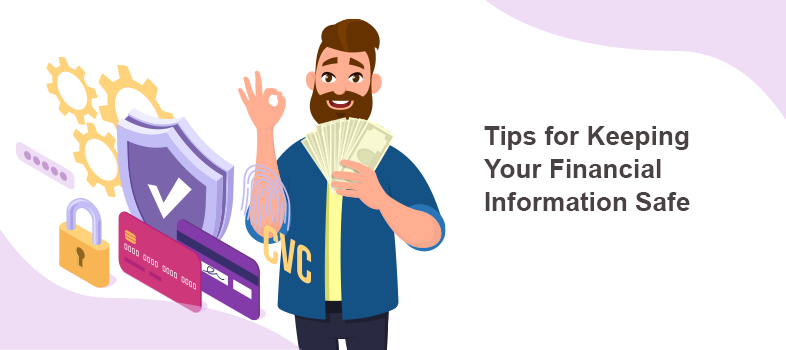Keeping your passwords and other personal information secure from external intruders has long been a top priority for consumers and individuals. We must use the data protection advice and follow practices to keep the sensitive details safe and secure.
Protecting your financial information can help reduce your risk of identity theft. There are majorly five ways to do it:
- Avoid accessing public WiFi
Whenever you’re in a public place, try not using public wifi. Initially, it may seem like an amazing idea but susceptible one ( full of risks). Public networks are in great risk to abuse and hacking to avoid misuse of all personal data like browsing history, emails and your passwords.
Even if you use public wifi, avoid sharing credit card details and personal information. So, make all online payments from your home internet connection.
- Use Two-Factor Authentication
For high-value accounts, users are required to enter a username, password, and randomly generated code that changes about every 30 seconds. Now a days, leading Indian banks such as HDFC, SBI, ICICI etc. are wising up and requiring this two-factor authentication to keep consumer data confidential.
- Keep changing your password
Time & again we witness people using obvious or weak passwords to aid easy recall memory. This majorly helps hackers to steal information in just no time. To ensure you put strong passwords and follow safe online shopping habits, follow the below:
- Avoid repeating your passwords, across all accounts. This gets easier to hack & retrieve data.
- Using a semi-long phrase to make it more difficult to guess.
- Use an online password manager to get unique, strong password ideas everytime you login
- Watch out for sham emails
We’ve been witnessing lately that email scams are becoming more and more common. And they are packaged in a manner where they are difficult to muddle through. This calls for extra vigilance while checking your inbox. Whenever you receive a fishy email from an unknown address, consider it to be a sham!
Strictly, do not click on any suspicious links sent through emails as they could erode your system information. Immediately delete the email and connect with your suggestive friend to inform them about potential hacking.
- Regularly update your computer and mobile device
Ensure your computer and mobile phones are timely updates along with the operating systems to protect against malware. Hackers are intelligent & locate weak spots to attack computer systems. Although, every phone and computer system have their internal processes to pick-up vulnerabilities and abnormalities.
Trending Topics:
Awareness | Savings | Personal Loans | Financial Planning | Credit Score Tips | Credit Card

